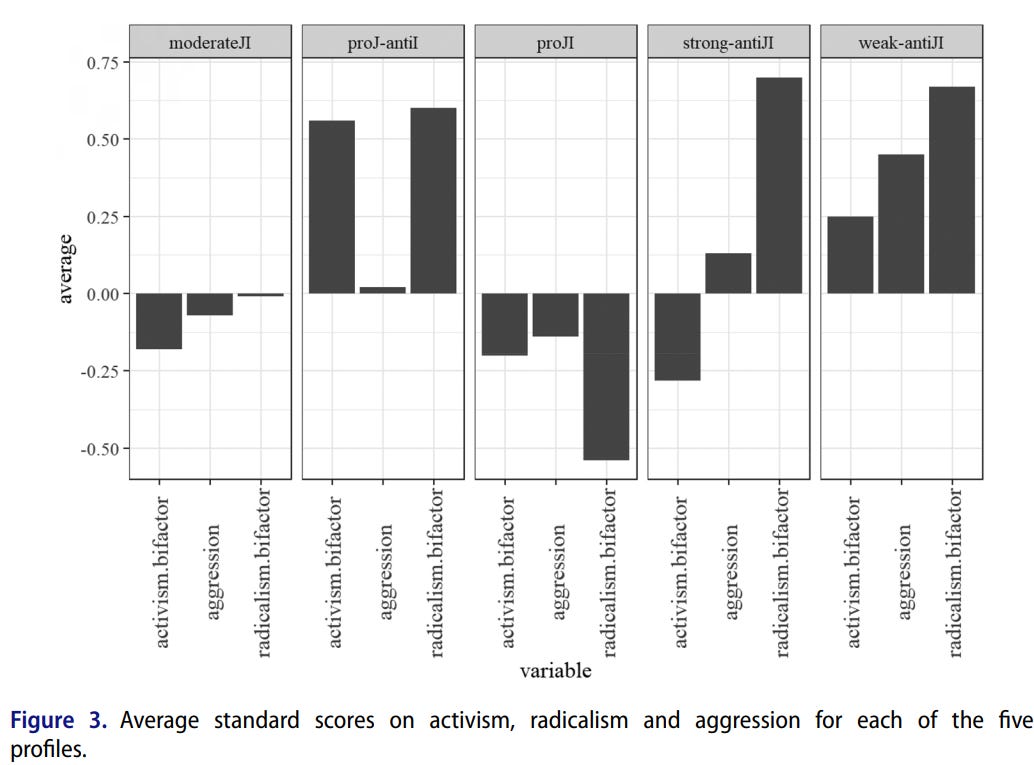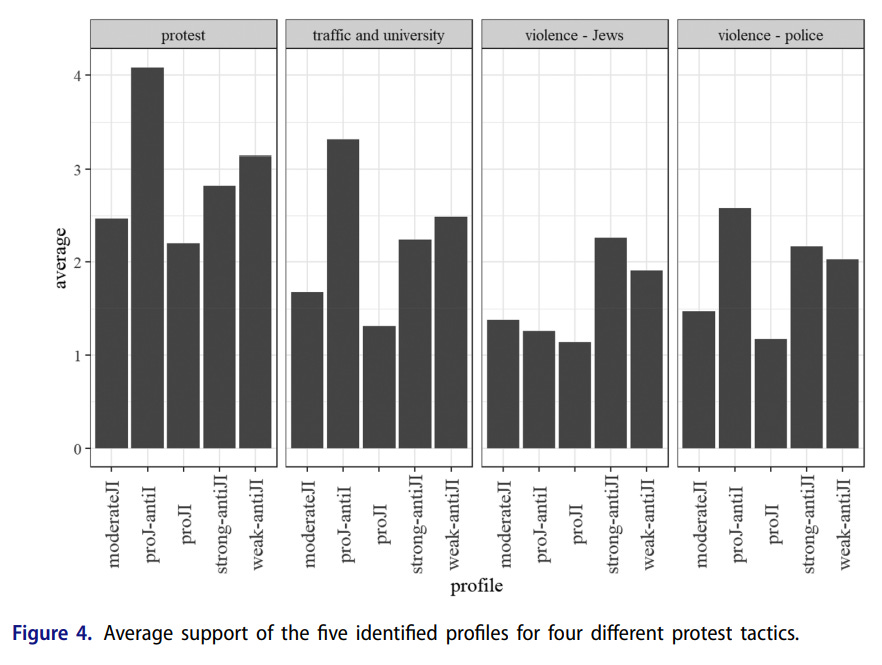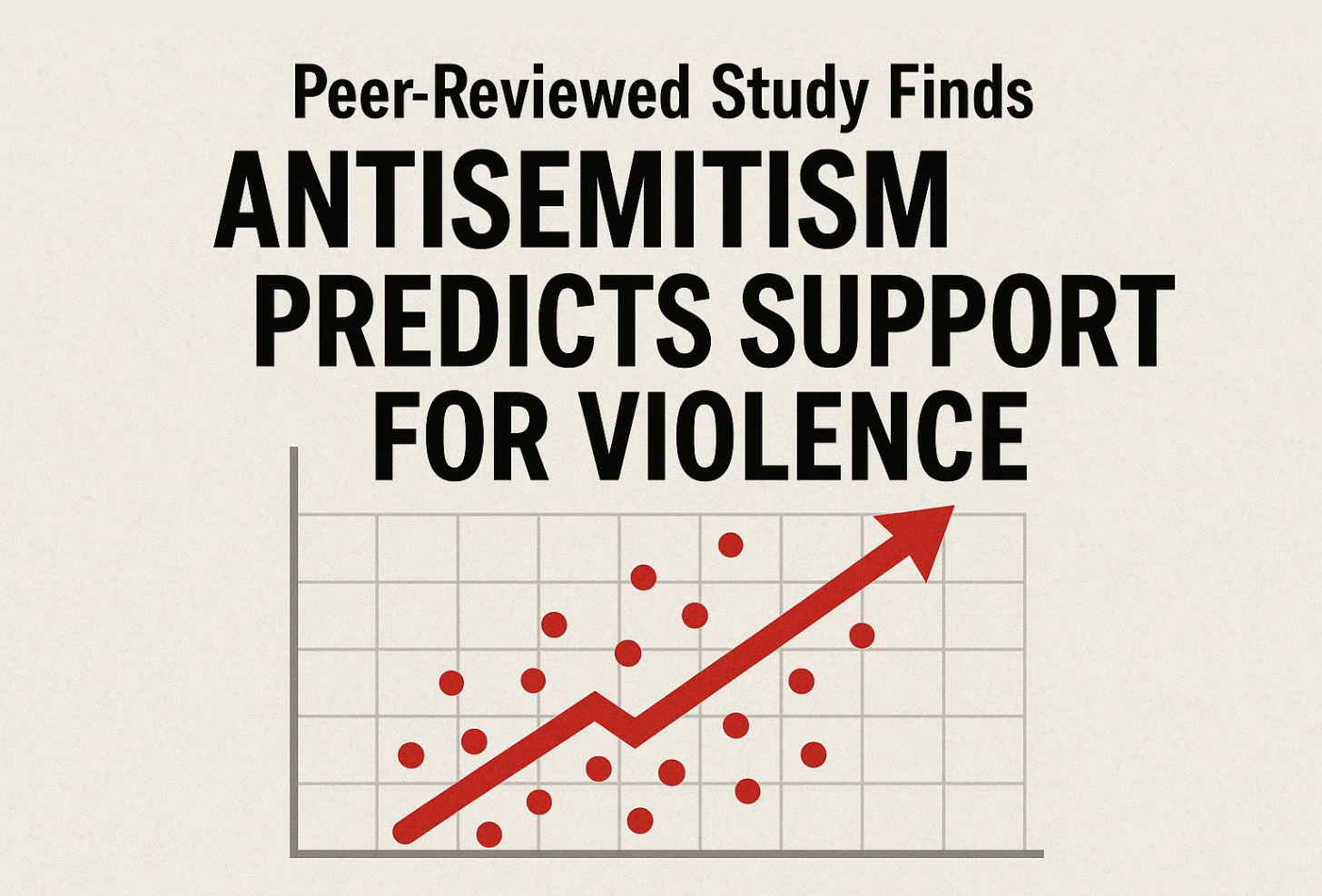Peer-Reviewed Study Finds Antisemitism Predicts Support for Violence
Antisemitic attitudes were strongly associated with support for political violence, whereas anti-Israel sentiment was linked to higher engagement in disruptive or unlawful activism.
A new peer-reviewed study in the Studies in Conflict and Terrorism journal sheds critical light on how antisemitic and anti-Israel attitudes translate into action among Americans. According to the findings, antisemitism reliably predicts support for political violence, while anti-Israel sentiment reliably predicts support for radical and often illegal activism, such as unauthorized road blockages, encampments, or forced shutdowns of public spaces.
The study, conducted by Sophia Moskalenko and Mia Bloom of Georgia State University and Tomislav Pavlović of the University of Zagreb, analyzed data from 542 U.S. adults collected in February 2025 and identified five attitudinal profiles toward Jews and Israel:
Moderate pro-Jewish and pro-Israeli (moderateJI)
Pro-Jewish and anti-Israeli (proJ–antiI)
Pro-Jewish and pro-Israeli (proJI)
Strongly anti-Jewish and anti-Israeli (strong-antiJI)
Weakly anti-Jewish and anti-Israeli (weak-antiJI)
Then, it compared the profiles across three traits — activism, radicalism, aggression — and support for different protest tactics (peaceful and violent actions).
Antisemitic Attitudes & Support for Political Violence
The study found that the strong-antiJI profile represents a small but distinct group (about 2% of participants) showing strongly negative attitudes toward both Jews and Israel. Members of this group displayed high radicalism and aggression, aligning them closely with support for political violence.
Across the study’s measures, participants in the strong-antiJI profile exhibited the highest acceptance of violent tactics, including violence against Jews and police, as part of anti-Israel protests. While their small sample size limited some statistical precision, the data consistently showed that antisemitic sentiment was tied to endorsement of violence and aggression, distinguishing this group sharply from others.

Anti-Israel Views & Support for Radical Activism
The largest group, comprising 40% of participants, held positive attitudes toward both Jews and Israel. However, 18% showed what researchers termed a “proJ–antiI” profile — positive feelings toward Jewish people coupled with negative views of Israel.
This cohort may not endorse outright violence against Jews, but it overwhelmingly favors radical protest tactics: road blockages, encampments, building occupations, and mass disruptions. These actions have led to numerous arrests over violent conduct, civil lawsuits, and significant deployment of police at the expense of the public dime.

Understanding the Findings
The study’s findings point to two related but distinct patterns. Antisemitic attitudes were strongly associated with support for political violence, whereas anti-Israel sentiment was linked to higher engagement in disruptive or unlawful activism. These outcomes indicate that different forms of hostility express themselves through different behavioral pathways—one oriented toward aggression, the other toward civil disobedience.
Encampments, road blockages, and similar protest actions emerged in the data as examples of this second pattern: activities that, while often framed as political expression, correlate with higher radicalism and a willingness to break laws. In contrast, the most overtly antisemitic profile was tied to direct support for violence, including against Jewish and institutional targets.
Taken together, the results suggest that antisemitism predicts violent tendencies, while anti-Israel activism predicts unlawful but nonviolent forms of protest. Both are associated with higher radicalism scores and reflect how ideological hostility can manifest in different forms of political extremity.



